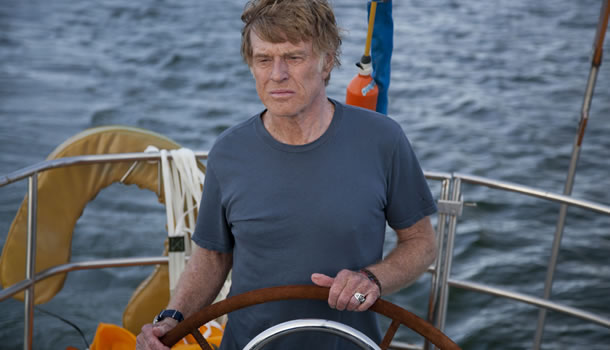Reviews
Movie review: “All Is Lost”

All Is Lost
dir. J.C. Chandor
Release Date: Oct 25, 13
- 1
- 2
- 3
- 4
- 5
- 6
- 7
- 8
- 9
- 10
All Is Lost is narrative storytelling stripped of all its innate noise and reduced to its deepest-rooted basics. It’s a remarkable film, in large part because of writer-director J.C. Chandor’s absolute faith in his lead (and only) actor and his basic, starkly life-or-death story. There’s something about All Is Lost that feels barely cinematic, almost literary in its rhythmic style choices, but the film could work no better in any medium than its own. For those who didn’t care for Gravity’s more traditionally mainstream style, here is a film that gets rid of the flashbacks and all of the other exposition, and lives only in the terrifying present.
After the film begins with a monologue (the film’s longest stretch of dialogue at any point, and one of the only) in the form of the film’s protagonist dictating a hopeless letter to an unknown party, the story jumps back to eight days prior where Our Man (Robert Redford, and yes, he’s credited as such) awakens on his yacht to find his sleeping quarters filling with water. A lost crate from a freighter ship has punctured the hull of his yacht, and so he must react quickly to avoid death. Our Man is resourceful, but he can only do so much, fighting both the endless ocean and a coming storm. As his vessel is wounded more and more fatally, Our Man is forced to use all his wits and play every card in his rapidly diminishing hand to stay alive.
The film’s lustrous photography belies Chandor’s endless clever touches, painting every alteration to a navigational map or creaking of the boat as one more precarious step closer to a tragic end. Material like that which composes All Is Lost can only work if the film avoids becoming a wallow in the inevitability of death, and Chandor wisely focuses the film around the power of human resolve in the face of completely feasible, and all the scarier, adversities. And Redford, as that symbol of power, achieves such a status while completely grounding Our Man in a very human state. Redford is stunning, adding to Chandor’s subdued storytelling cues by communicating many of them through subtle movements.
All Is Lost is also a truly tense experience from start to finish, and the film’s total isolation helps the film reach crushing levels of frightening atmosphere at points. If its final shot feels just a bit like a cheat, ending the film on a note of ambiguity that may well be frustrating for some, it’s also the first time in the whole film where you’re allowed to wonder what’s next for Our Man. Until that point, Chandor and Redford have established his fate as so real and so oppressively immovable that perhaps not even a man of supreme composure and intelligence can overcome that fate, or nature, or a religious diety, or whatever other larger forces you may prefer. Our Man’s story isn’t actually a simple story of a boating accident at all. It might well be the story, the driving force behind so many more elaborate tales. It’s life against death, and there are no other options or contrivances. Just the one, or the other.